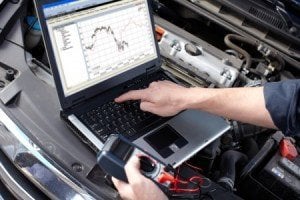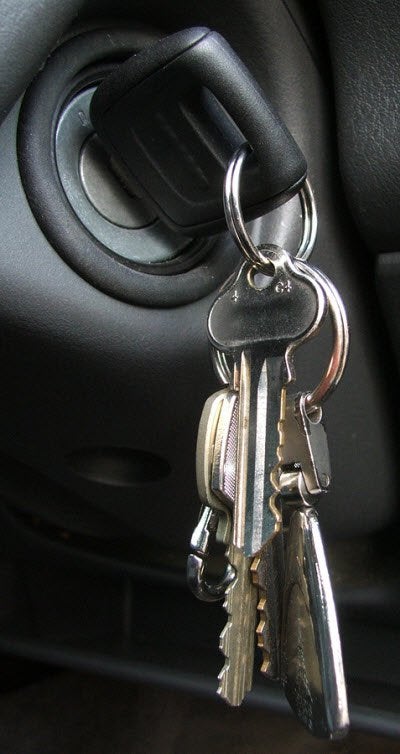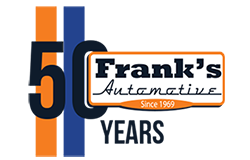-
Understanding Auto Diagnostics
When you bring your car in to an auto mechanic in Sacramento , your technician will use advanced diagnostic equipment to determine precisely wheat is going on under the hood. Auto diagnostic services have completely revolutionized car repair for today’s modern vehicle owner.
With auto diagnostics, your auto mechanic can use a specialized computer system to check your car for any mechanical trouble codes. In the event that a mechanical issue arises in your vehicle, a special trouble code will enter into your vehicle’s internal system. This trouble code can point your mechanic towards the precise types of repairs that are required by your vehicle. In addition, the onboard diagnostics system in your car stores a record of all past trouble codes and errors. By using auto diagnostics to pinpoint your mechanical issue, a mechanic can make sure that your car is in peak driving condition when it leaves the auto shop.

-
Signs You Need Alternator Repair
 Your car’s alternator is among its most vital internal systems. Without a properly working alternator, the electrical components in your car will fail to function. A company that offers car electrical repair in Sacramento will be able to diagnose and fix any issue that may be occurring with your alternator. When you bring your German car in for a routine maintenance appointment, your technician may also take the time to check out the quality and condition of your alternator. To help you decide when it is time to visit the mechanic, here is a look at some of the top signs that you need alternator repair.
Your car’s alternator is among its most vital internal systems. Without a properly working alternator, the electrical components in your car will fail to function. A company that offers car electrical repair in Sacramento will be able to diagnose and fix any issue that may be occurring with your alternator. When you bring your German car in for a routine maintenance appointment, your technician may also take the time to check out the quality and condition of your alternator. To help you decide when it is time to visit the mechanic, here is a look at some of the top signs that you need alternator repair. Illuminated Dashboard Light
One of the top signs that your car needs alternator repair is when your dashboard light becomes illuminated. Your car’s dashboard is equipped with a series of lights that can provide you with a clue into any mechanical troubles that your car may be experiencing. When you find that the GEN or ALT light is illuminated on your dashboard, this is a good indication that your car needs alternator repair.
Dim or Flickering Headlights
Another sign that you may need alternator repair for your vehicle is when your headlight become dim or start to flicker. Your car’s alternator is responsible for sending electrical power to your headlights. If you find that your lights are dimmer than usual, it may be time to have your alternator checked out. By repairing your alternator, you can also restore the performance and safety of your headlights.
Unusual Noises
Finally, you can listen for unusual noises when you are diagnosing an alternator problem in your vehicle. When your alternator is failing, you may hear a strange rattling or banging sound coming from your engine. This rattling noise is caused by bearings that have fallen off or gotten loose in your alternator system. At the first sign of alternator troubles in your vehicle, you will want to schedule an appointment with a top rated mechanic in your area.
-
Symptoms of a Slipping Transmission
A slipping transmission is a serious issue for any car owner. Typically, automatic transmissions are more likely to slip than manual transmissions. In the event that the clutch bands slip or become loose, you may notice some unusual symptoms when you drive. One of the symptoms of a transmission slipping in a German car is failure to accelerate when you step on the gas. Additionally, you may also find that your engine revs unexpectedly as you drive. An auto mechanic offering transmission repair in Sacramento can help you diagnose and fix any problems that may be happening in your transmission. To help you determine when it is time to schedule transmission maintenance and repairs, check out this short video.
-
How Do Anti-Lock Brakes Work?
German cars are renowned for their fantastic performance and safety. One of the most important auto care procedures that you can schedule for your European vehicle is brake repair. Over the miles of driving, your car’s brake pads and rotors will experience natural wear and tear. If you do not have your brake pads serviced by a technician that specializes in brake repair in Sacramento , your brakes could fail to stop or slow your vehicle adequately. To highlight the importance of brake repair, here is a closer look at how anti-lock brakes work.

Principles of Anti-Lock Brakes
Understanding the principles behind anti-lock brakes is integral to learning about how they function. Anti-lock brakes are designed around the principles of traction. When a car’s wheel skids as it is travelling down the road, the driver can quickly lose control of the vehicle. Anti-lock brakes are designed to prevent skidding, thereby allowing the driver to remain in complete control. Additionally, by preventing skidding, anti-lock brakes allow the car’s braking system to work more effectively without needing to pump the brake pedal.
Types of Anti-Lock Brakes
There are three main types of anti-lock brakes that can be installed in your vehicle. The most common type of anti-lock braking system is the four-channel, four-sensor ABS. With four channels, the anti-lock braking system has a separate speed sensor on each wheel. The sensors tell the anti-lock brakes when the wheels are locking up. A car can also be equipped with a three-channel, three-sensor system or a one-channel, one-sensor system.
Functions of Anti-Lock Brakes
The anti-lock braking system in a car is designed to help drivers maintain full stopping power at all times as they travel down the road. If the anti-lock brake system’s sensors determine that one or more of the wheels are skidding or seizing up, the system will gently unlock the brakes. With a properly maintained anti-lock braking system, you can ensure that your car is in peak driving condition for every mile that you travel down the road.
RECENT POSTS
categories
- Uncategorized
- Automotive
- automotive diagnostics services
- Frank’s Automotive
- auto shop
- oil change
- Auto mechanic
- Maintenance
- maintenance schedule
- Catalytic Converter
- Engine Light
- oxygen sensor
- Transmission Problems
- BMW
- Pre-Purchase
- Brakes
- Anti-Lock Brakes
- Auto Diagnostics
- Alternator Repair
- Slipping Transmission
- Engine Trouble
- Brake Sounds
- Frank’s Automotive
- Frank Lettini
Archives
2022
2020
2019
2017
2016
- December (4)
- November (5)
- October (4)
- September (4)
- August (4)
- July (4)
- June (4)
- May (4)
- April (4)
- March (4)
- February (4)
